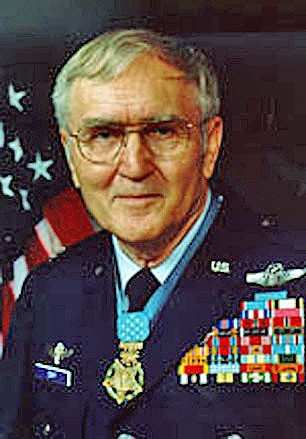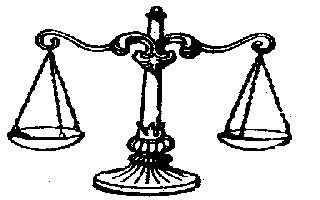Honored Veteran Takes Lead Defense Position
by Senior Correspondent Kevin R.C. "Hognose" O'Brien
 Aero-News has learned
that USAF Col (Retired) George Everett "Bud" Day MOH, one of the
most highly decorated veterans of the Vietnam War, or of US history
for that matter, has undertaken to defend "up to 20" Marines who
have been accused of crimes up to and including murder in
connection with an alleged massacre in Haditha, Iraq.
Aero-News has learned
that USAF Col (Retired) George Everett "Bud" Day MOH, one of the
most highly decorated veterans of the Vietnam War, or of US history
for that matter, has undertaken to defend "up to 20" Marines who
have been accused of crimes up to and including murder in
connection with an alleged massacre in Haditha, Iraq.
Col. Day is a veteran, peculiarly enough, of World War II as a
Marine, and later of the Army, and then of Korea and Vietnam in the
United States Air Force. In Vietnam, he started and led the Misty Super FAC program, which
includes among its old boys Dick Rutan and several other aviation
luminaries. In a tradition begun by Day, each Misty pilot had a
unique numbered callsign beginning, of course, with Misty 1 (Day,
of course; Rutan was Misty 40).

Day was marked for success in the Air Force early in his flying
career, when he made a "no-chute" ejection from a doomed F-84F and
survived. "I bailed out of a burning F-84 in 1957 in England," he
wrote in response to an enquiry from the Free Fall Research Page. "My
parachute did not open, but lucky for me I landed in the Queen's
forest, and the riser cords of the chute wove in and out of the
pine tree I fell in. I bailed out between 300 and 500 feet and
lived."
On August 24, 1967, then-Major Day was breaking in a new pilot
on F-100F "Misty" "fast FAC" duty in the southern reaches of North
Vietnam. He was instructing pilot Corwin Kippenham on how best to
approach the target, a missile site, when their aircraft was hit.
At over 500 knots it became a fireball.
 Day ejected, followed
by Kippenham, and they landed in North Vietnam near the
Demilitarized Zone between North and South Vietnam. Day had a
broken arm -- broken in three places -- and a dislocated knee, and
the North Vietnamese grabbed him only a mile or so from where
Kippenham boarded a helicopter to safety. Later Day escaped, only
to be wounded by US fire when he slept too near an enemy artillery
site, and ultimately recaptured after being wounded yet again.
Day ejected, followed
by Kippenham, and they landed in North Vietnam near the
Demilitarized Zone between North and South Vietnam. Day had a
broken arm -- broken in three places -- and a dislocated knee, and
the North Vietnamese grabbed him only a mile or so from where
Kippenham boarded a helicopter to safety. Later Day escaped, only
to be wounded by US fire when he slept too near an enemy artillery
site, and ultimately recaptured after being wounded yet again.
In almost six years of captivity, Day endured unspeakable
tortures, and, his fellow captives recall, drove his captors wild.
In one case he responded to them by singing "the Star Spangled
Banner," which earned him a particularly violent beating -- as the
other prisoners all joined in, and the guards saw it as a loss of
face.
There's no official list of most highly decorated veterans, but
Day and Army Colonel Bob Howard are more or less tied for the top
title. There was a more highly decorated veteran in World War II,
though: Douglas Macarthur. In all, Day has a staggering 70 awards
and decorations, not to mention such post-service honors as having
the Sioux City Airport named after him.
After retiring from the Air Force in 1977, Bud Day put his
long-dormant law degree to work and he has been a lawyer and an
activist for veterans ever since. He has not always won, but
government attorneys have come to fear him almost as much as the
North Vietnamese prison guards did.

These days, the old warrior even sees a rosy side to his bleak
years of captivity: "Freedom has a special taste!" His legal record
is a formidable as his military record; he has frequently argued
appellate cases, and has taken cases to the Supreme Court and
argued them there.
While there has been much reaction to probable charges in the
Haditha case, no details have been released, charges laid, nor
defendants named by officialdom -- yet. But the defendants, whoever
they may be -- and we hadn't heard numbers like "20" before -- will
not lack effective counsel.
 Aero-News: Quote of the Day (12.09.25)
Aero-News: Quote of the Day (12.09.25) ANN's Daily Aero-Term (12.09.25): High Speed Taxiway
ANN's Daily Aero-Term (12.09.25): High Speed Taxiway ANN's Daily Aero-Linx (12.09.25)
ANN's Daily Aero-Linx (12.09.25) NTSB Final Report: Diamond Aircraft Ind Inc DA20C1 (A1); Robinson Helicopter R44
NTSB Final Report: Diamond Aircraft Ind Inc DA20C1 (A1); Robinson Helicopter R44 ANN FAQ: Q&A 101
ANN FAQ: Q&A 101






